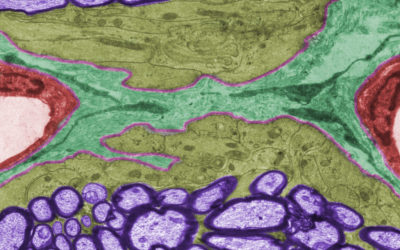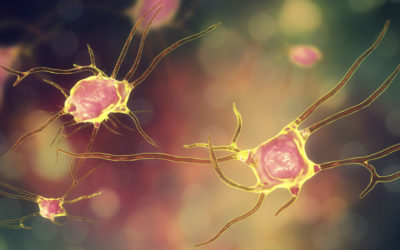Quick Hits
Daily brief research updates from the cognitive sciences

We all know that dogs like to sniff each other – often in “delicate” parts of their body. We also know that many other animals have very good sense of smells. But in our daily lives, apart from food, our sense of smell seems to play a subordinate role.
However, this fascinating piece of research out of the Weizman Institute of Science says something else. Namely that our friends smell like us and that we likely choose our friends based on their smell!
This may sound far-fetched at first glance but we do already know that we use our sense of smell more than we think. We are actually often constantly smelling ourselves but often in unconscious ways. This could be through wiping our faces with our hands, a sneaky smell under our armpit, but also after shaking hands we often automatically and unconsciously rub this against our nose. The remnants of an automated smell reflex.
The question then remains do we choose our friends, or alternatively our romantic partners, based on smell? This is a question that Inbal Ravreby set out to answer.
First, she founds sets of so-called “click” friends. These are friends who click on first meeting and don’t need a lot of time to become familiar with each other. Ravreby hypothesised that this was down in part to a sense of smell in absence of other information. She used an eNose (yes, that is a thing – an electronic nose to identify smells and odours) and indeed found that these click friends had similar smells.
However, we also know that friendships tend to follow pretty predictable paths, similar social backgrounds, upbringing, etc. So maybe this similarity in odour was also down to similar eating and nutrition patterns which affects your body odour. Ravreby therefore set up a second experiment and in this volunteers who had never met each other were first “smelt” with the eNose before then being asked to engage in non-verbal interaction with others. The participants then rated how likeable they found the other person and how likely they thought they would become friends.
Based on the eNose data alone they could predict with 71% accuracy who was likely to have a positive social interaction. Not bad!
So, this shows that friendships are driven by many factors but that out underestimated sense of smell plays a much large role than thought. But hopefully we won’t start sniffing each other like dogs.

Andy Habermacher
Andy is author of leading brains Review, Neuroleadership, and multiple other books. He has been intensively involved in writing and research into neuroleadership and is considered one of Europe’s leading experts. He is also a well-known public speaker speaking on the brain and human behaviour.
Andy is also a masters athlete (middle distance running) and competes regularly at international competitions (and holds a few national records in his age category).
Reference
Inbal Ravreby, Kobi Snitz, Noam Sobel.
There is chemistry in social chemistry.
Science Advances, 2022; 8 (25)
DOI: 10.1126/sciadv.abn0154
More Quick Hits
How Your Brain Eats Itself – To Improve Memory
Your brain eats itself – gruesome eh! Actually this appears to be a good thing most of the time…
A Regular Routine Makes You Happier and Smarter
Recent research just published shows that a regular routine with plenty of activity protects against depression and preserves cognitive function!
Like Smart Humans, Smart Jays Exhibit Self Control
Jays are smart, that is known. Now we know they can exhibit self-control – but only if they are smart themselves.
Your Dog Can Smell When You’re Stressed – And Reduce Stress
The benefits of pets – but it depends on how healthy your relationship is with them.
Neurons in a Dish Learn to Play Pong
A group of neurons in a petri dish can learn to play a computer game – amazing!
Chirp Up! Birdsong Improves Mental Wellbeing
We know birdsong has positive benefits – and this research is showing by just how much…






